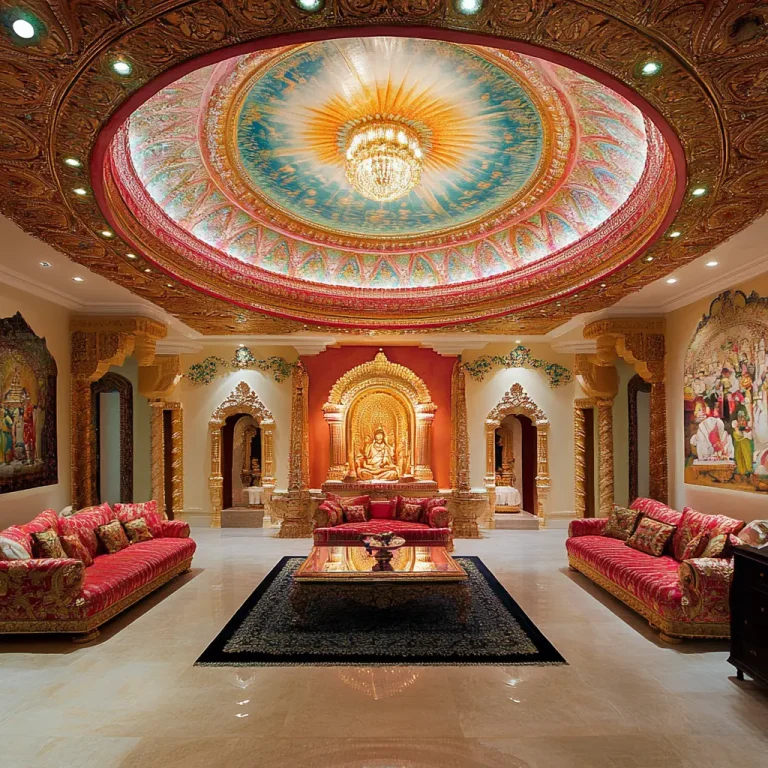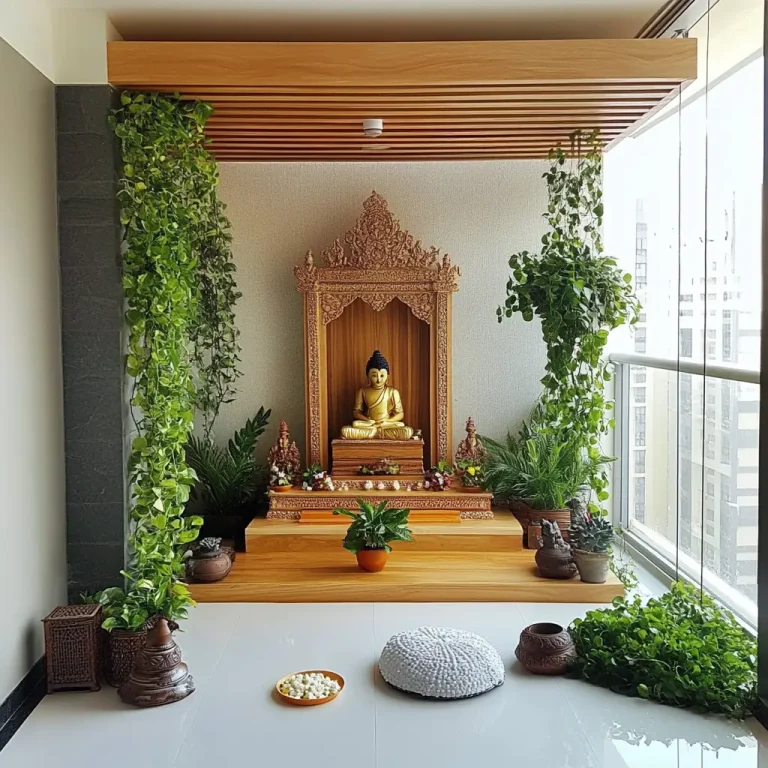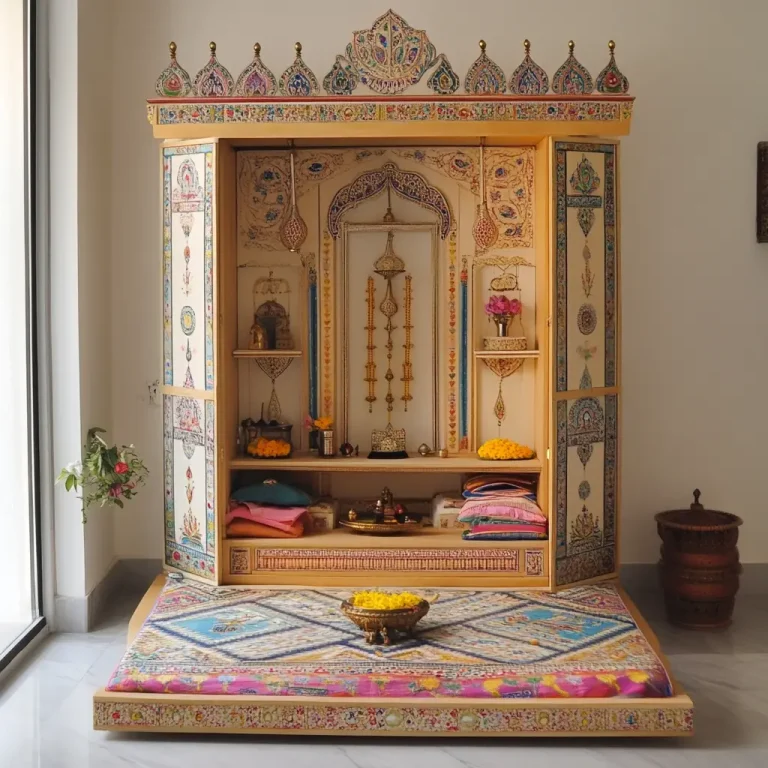20 Open Pooja Room Ideas for Indian
In Indian homes, the pooja room holds a sacred space—where rituals unfold, prayers are whispered, and a sense of peace fills the air. With modern living and compact layouts becoming the norm, having a dedicated room isn’t always possible. That’s where open pooja room designs come in. These spaces blend seamlessly into living areas, passages, or corners, while still maintaining sanctity and a beautiful sense of presence. Whether you live in an apartment or a spacious home, these 20 open pooja room ideas will inspire you to create a divine nook that feels both traditional and timeless.
1. Corner Pooja Setup with Wooden Backdrop
Transform an unused corner into a serene pooja space with a wooden backdrop. Choose carved wood panels or jaali work to define the area. Add brass diyas and traditional idols to give it a spiritual, grounded aura.
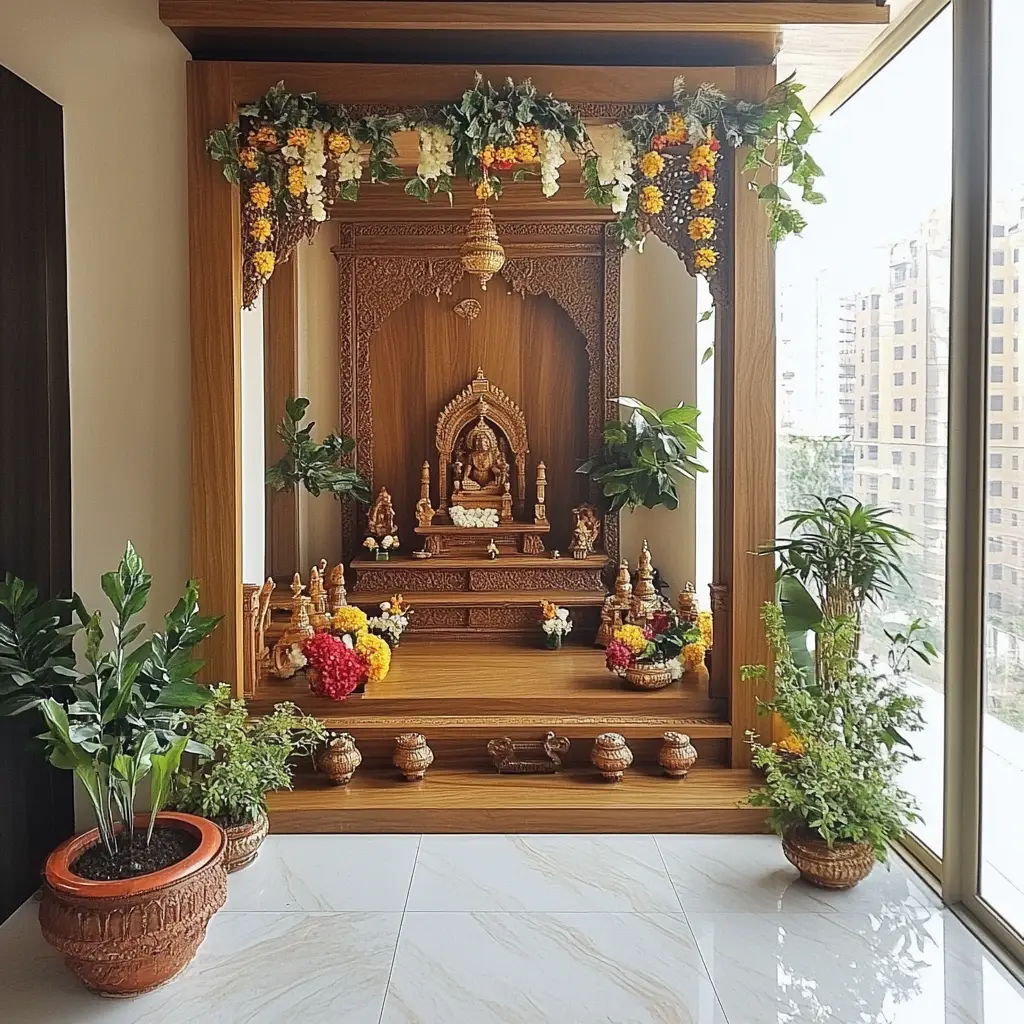
2. Wall-Mounted Mandir Unit
A wall-mounted mandir is perfect for small apartments. Opt for a unit with drawers for storing pooja essentials and shelves for idols. Place it against a highlighted wall with warm lighting to create a divine focal point.
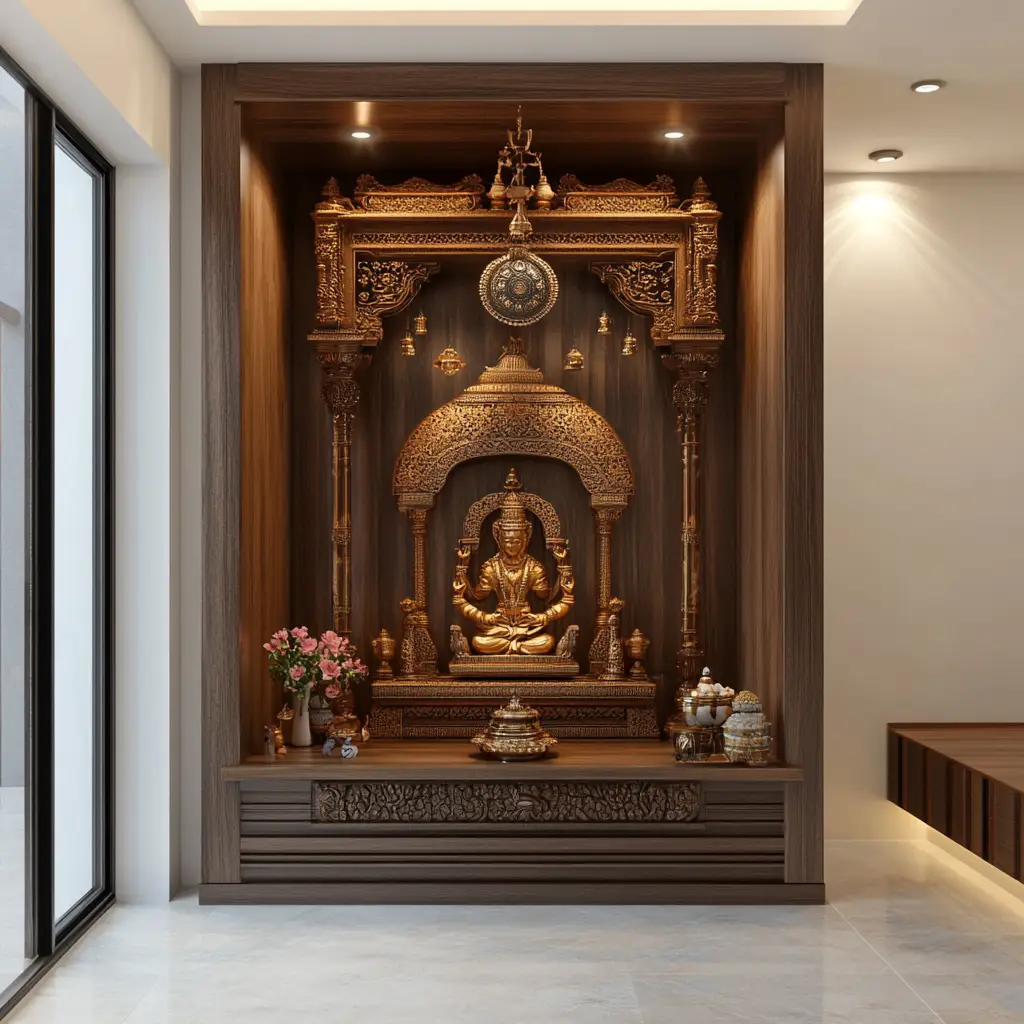
3. Pooja Space in Living Room Niche
If your living room has a niche or recessed wall, that’s a natural spot for a pooja corner. Use decorative tiles or wallpaper as a backdrop, and include a small platform or low cabinet for deity placement.
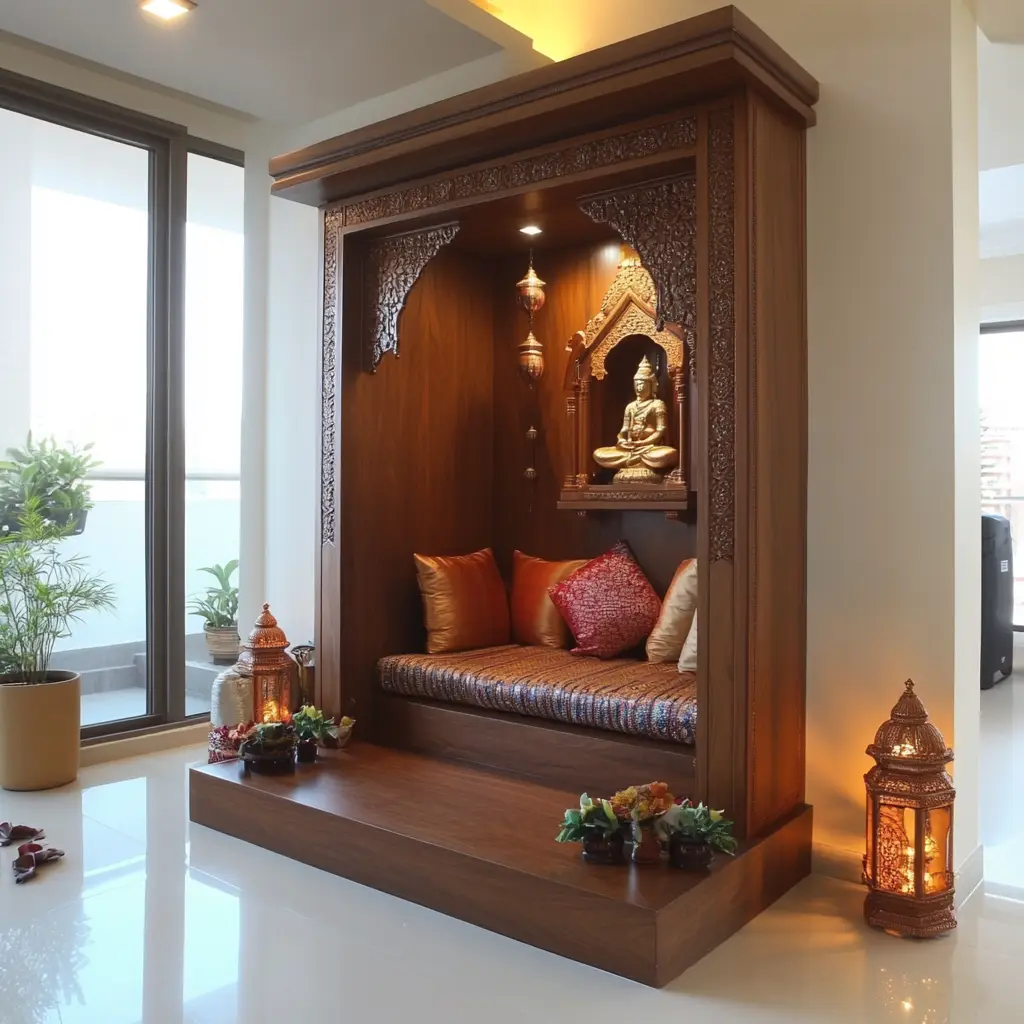
4. Open Mandir with Jaali Partition
Create a semi-private feel with a jaali partition in wood or metal. This helps define the pooja area while keeping it visually open. You can place this beside the dining or hallway to subtly separate the space.
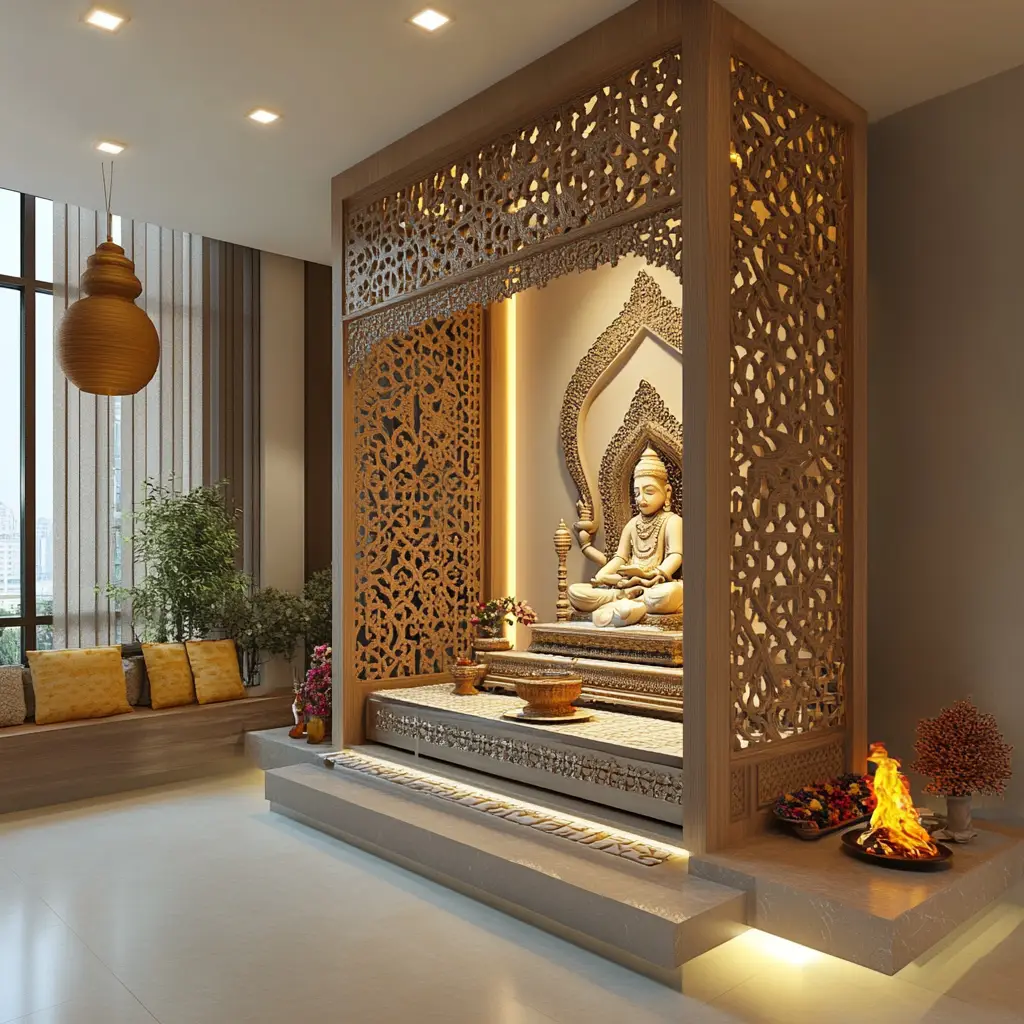
5. Floating Shelf Pooja Corner
For ultra-modern or minimalist homes, a floating shelf setup with a single idol, a small lamp, and incense holder keeps the space spiritual yet streamlined. Add a soft spotlight for a calming glow.
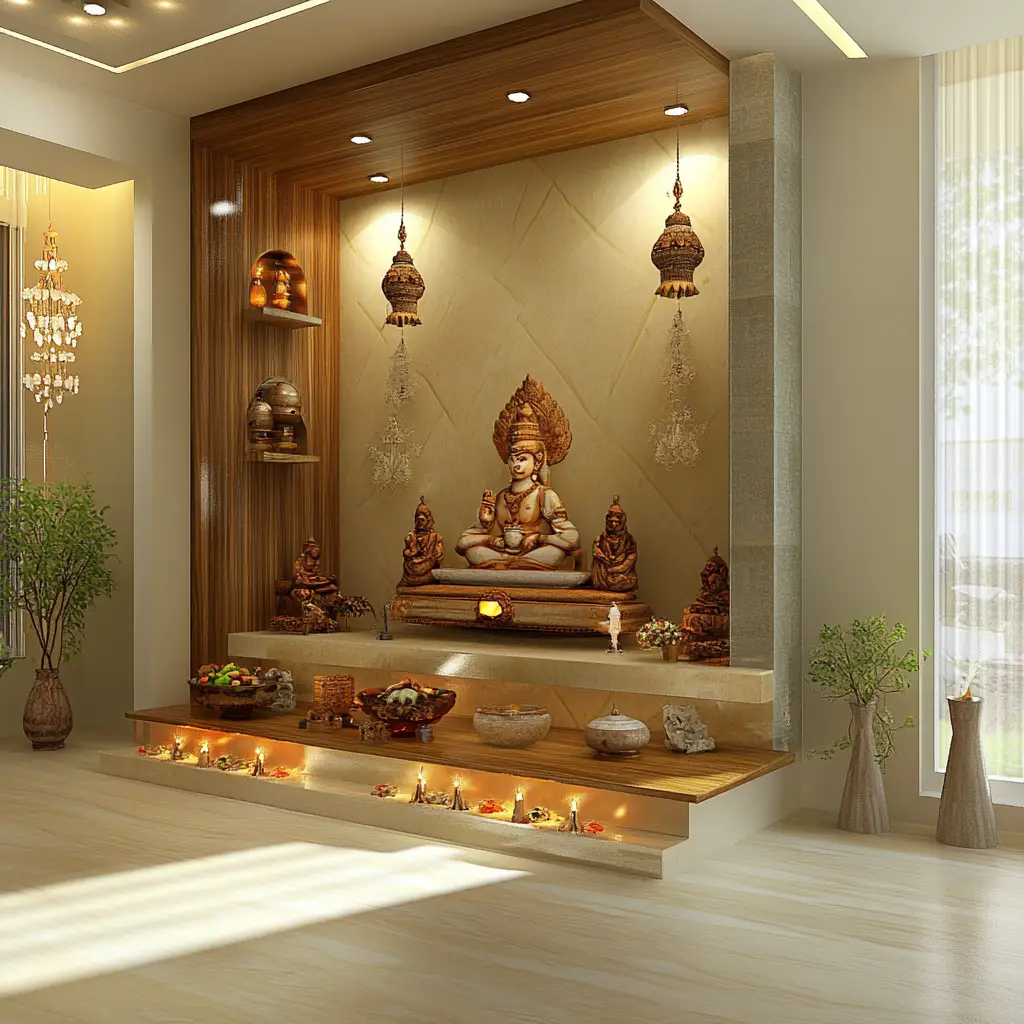
6. Temple-Style Alcove with Arched Frame
Install a temple-style arch frame on a wall to mimic the traditional gopuram structure. Inside the arch, place idols and lamps on a raised platform. This works well in open foyers or hallway corners.
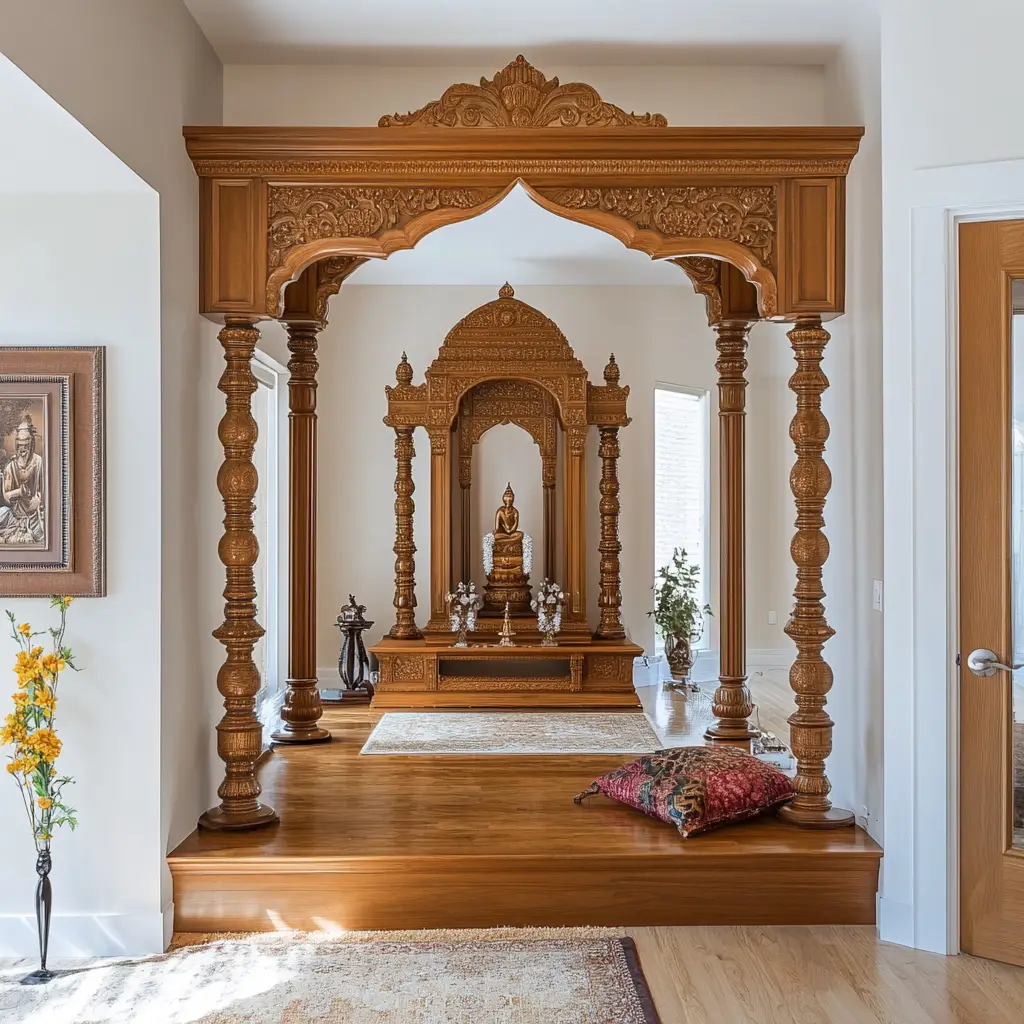
7. Compact Wooden Mandir Cabinet
A wooden mandir cabinet with doors allows you to maintain privacy for your deities while being part of an open layout. Choose traditional carvings and pair with bells for that sacred temple vibe.
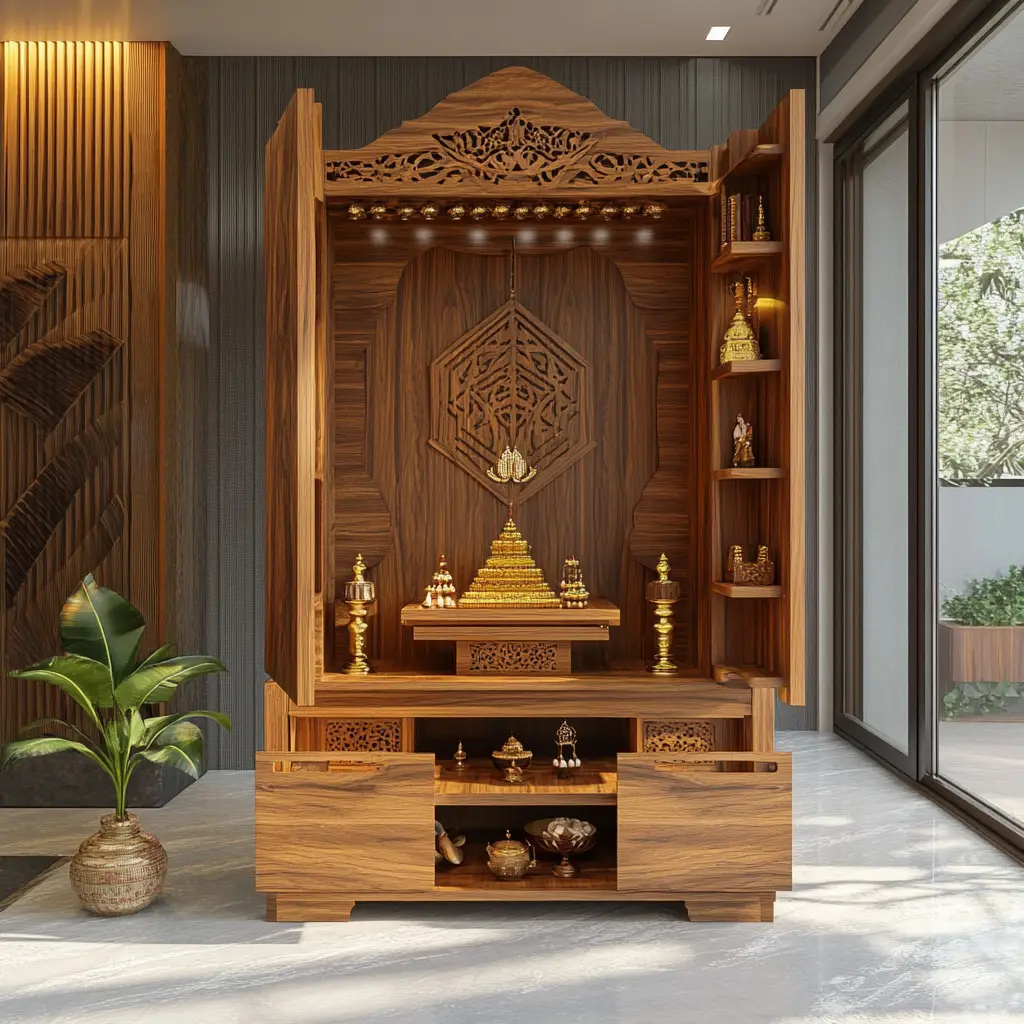
8. Glass Enclosed Pooja Unit
For a contemporary look, use glass panels to enclose your pooja unit. This maintains openness while offering a respectful boundary. Frosted glass with etched motifs adds elegance and subtlety.
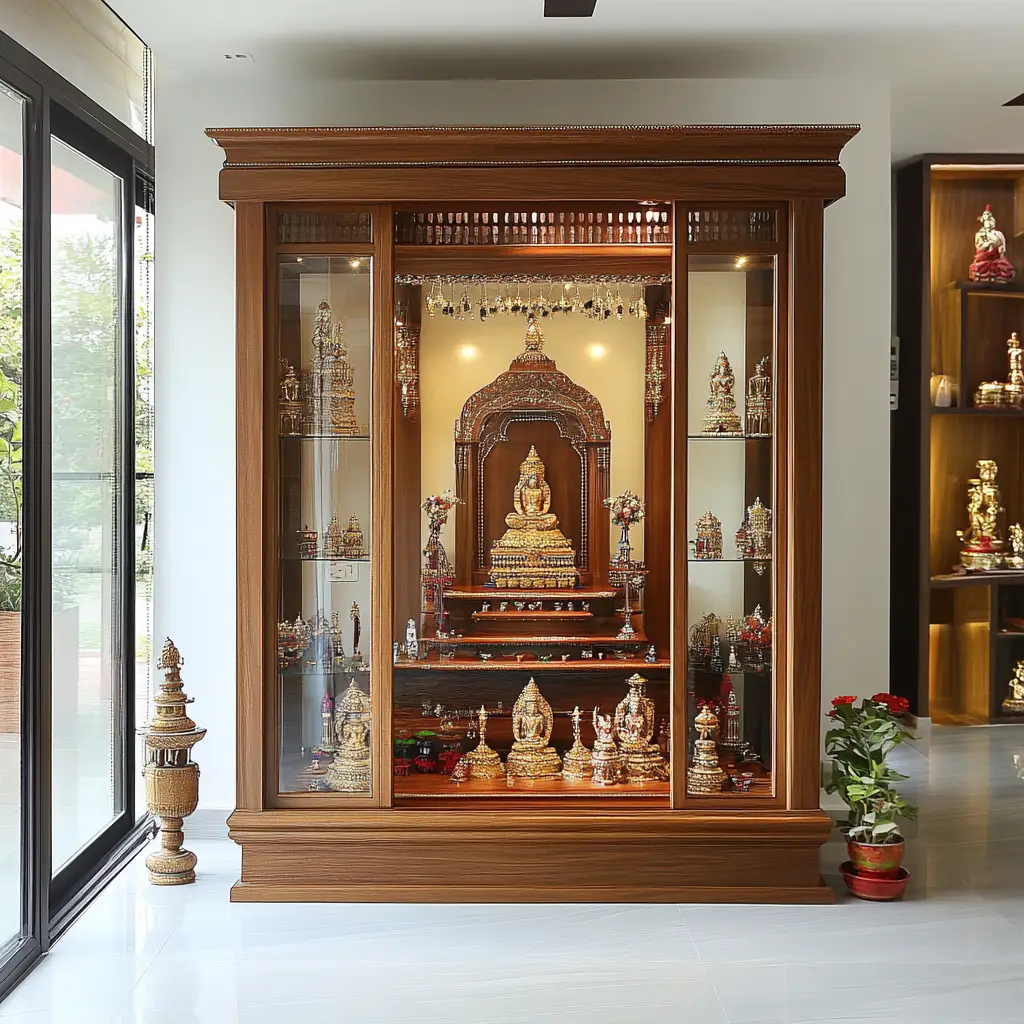
9. Passageway Pooja Space
Long corridors or entryway walls are often overlooked. Turn them into peaceful pooja areas with narrow units and decorative lighting. Use brass bells or miniature columns to give it a spiritual charm.
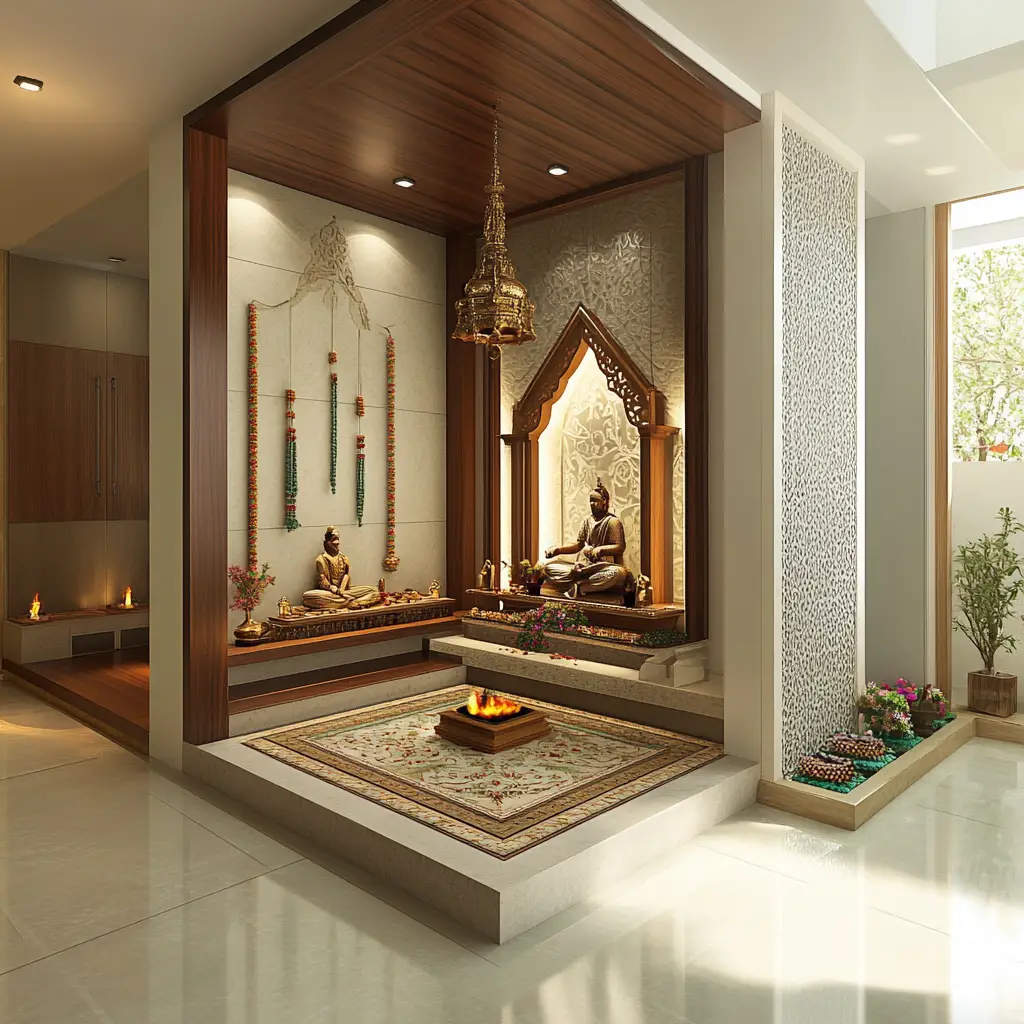
10. Pooja Unit Inside Bookshelf or Showcase
Integrate a small mandir section inside a bookshelf or open showcase. Dedicate a shelf to idols, diya stands, and flowers. This fusion style works well in compact urban apartments.
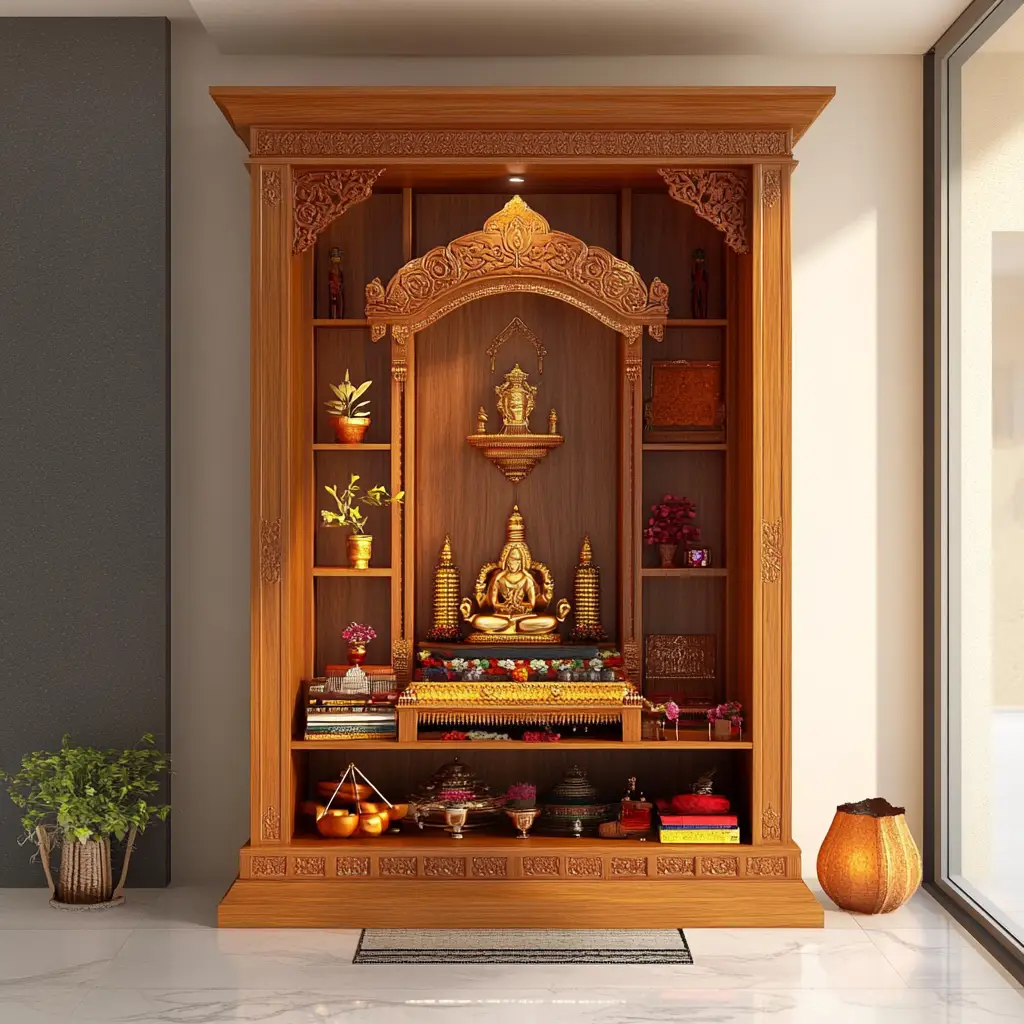
11. Hanging Bell Backdrop
A wall adorned with multiple hanging brass bells or ghantis becomes a sacred and musical statement piece. Use this as a backdrop to an open pooja unit and place floor mats or a low stool for daily prayers.
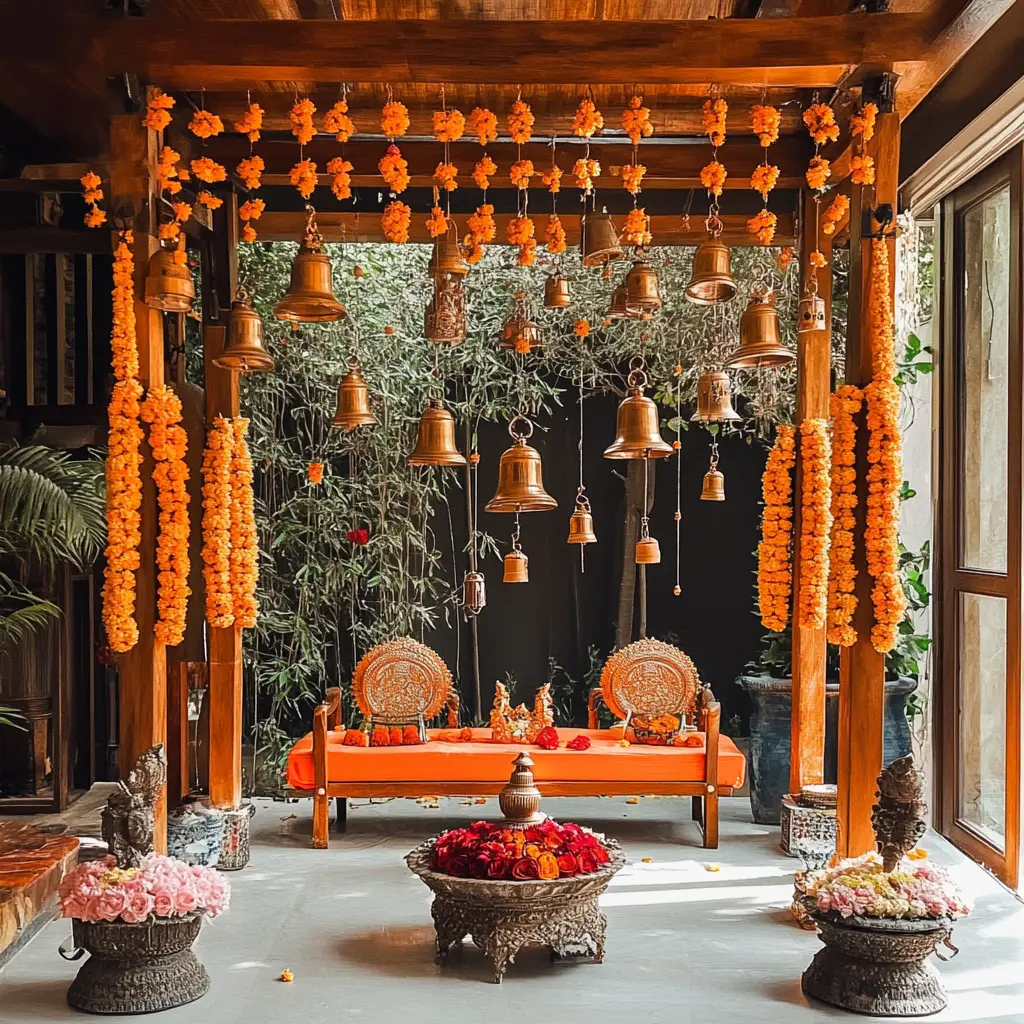
12. Mandir in Open Kitchen-Dining Crossover
Place a compact pooja setup between the kitchen and dining area, where the aroma of food and incense blend in harmony. Use a small cabinet with spiritual artwork and ambient lighting for daily rituals.
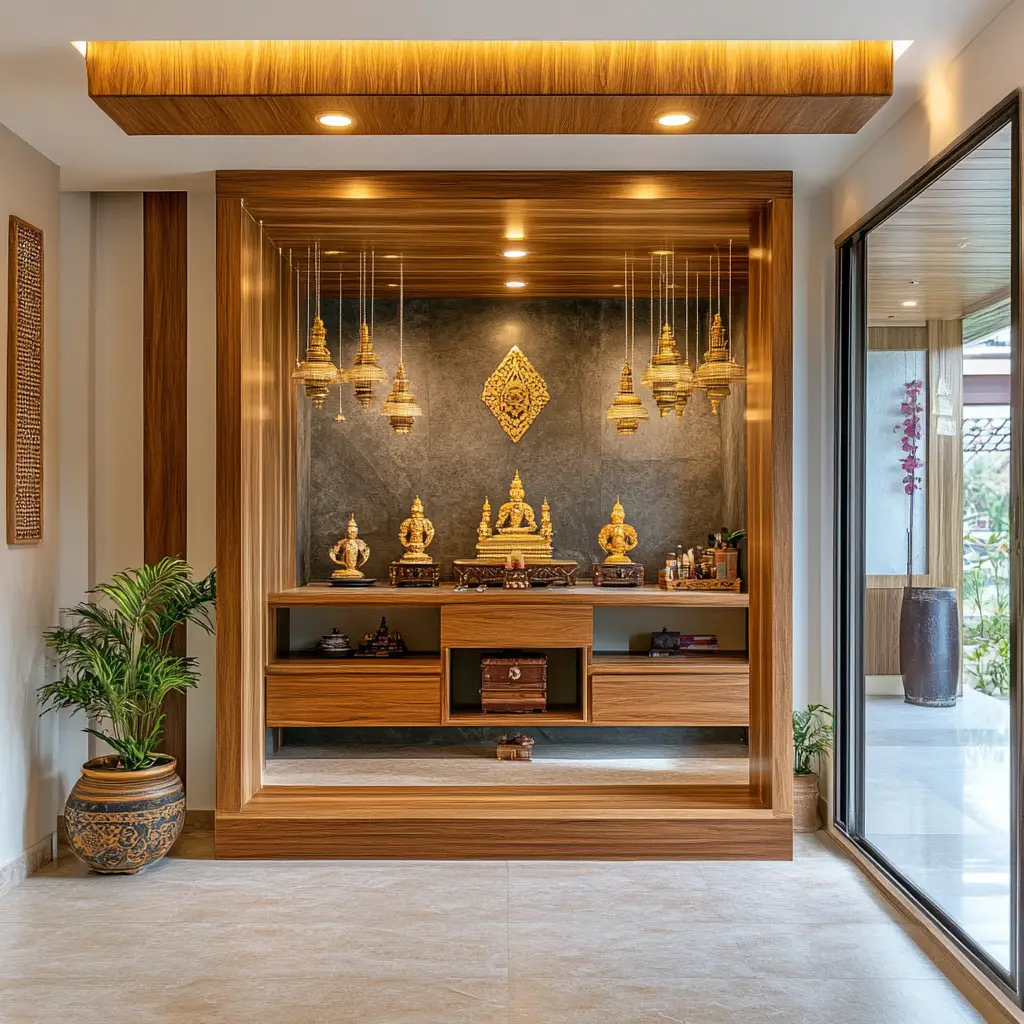
13. South Indian-Style Wooden Pillars
Add two wooden carved pillars or columns to demarcate the pooja space in an open area. The design evokes a temple-like atmosphere and can easily frame a central deity or idol platform.
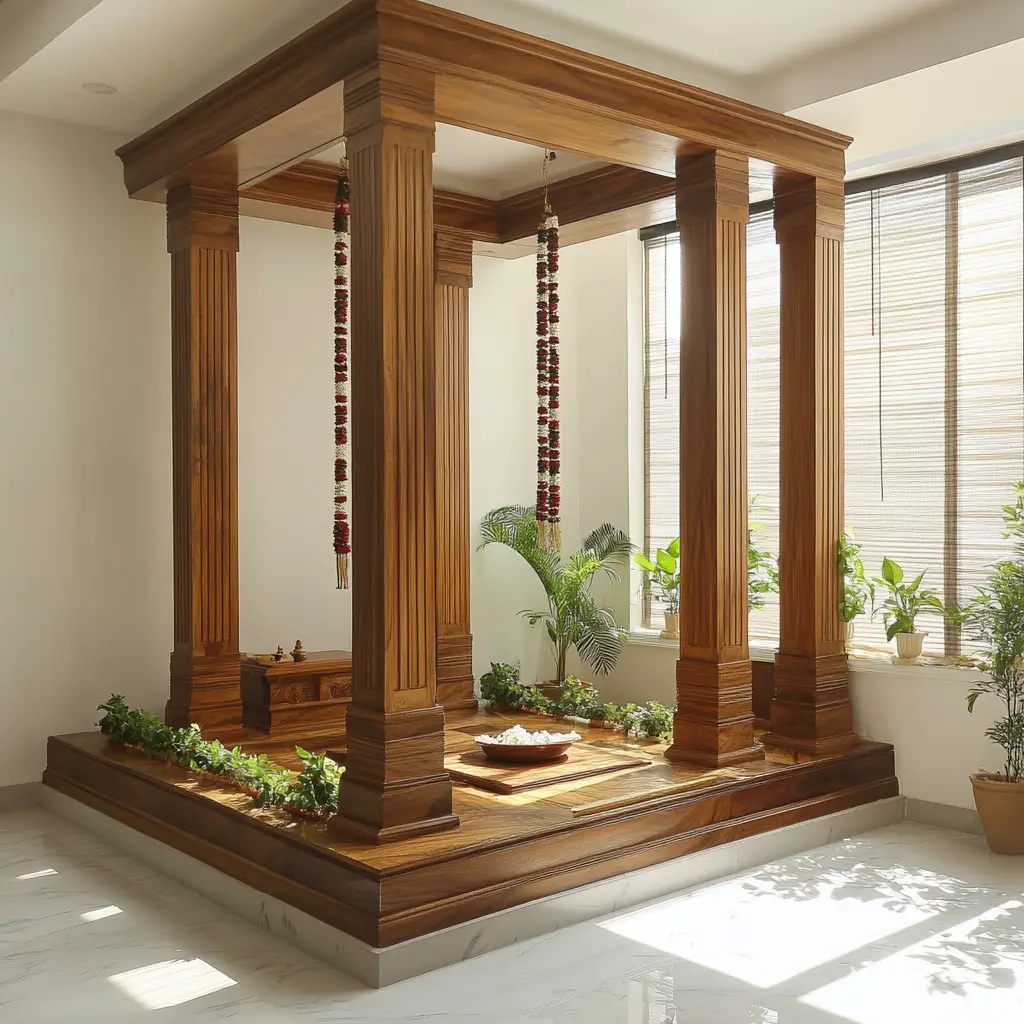
14. Pooja Wall with Intricate Tilework
Use traditional Indian tiles, like blue pottery or Moroccan patterns, as a decorative backdrop for your pooja wall. Place small wooden shelves over them to hold idols, oil lamps, and flowers.
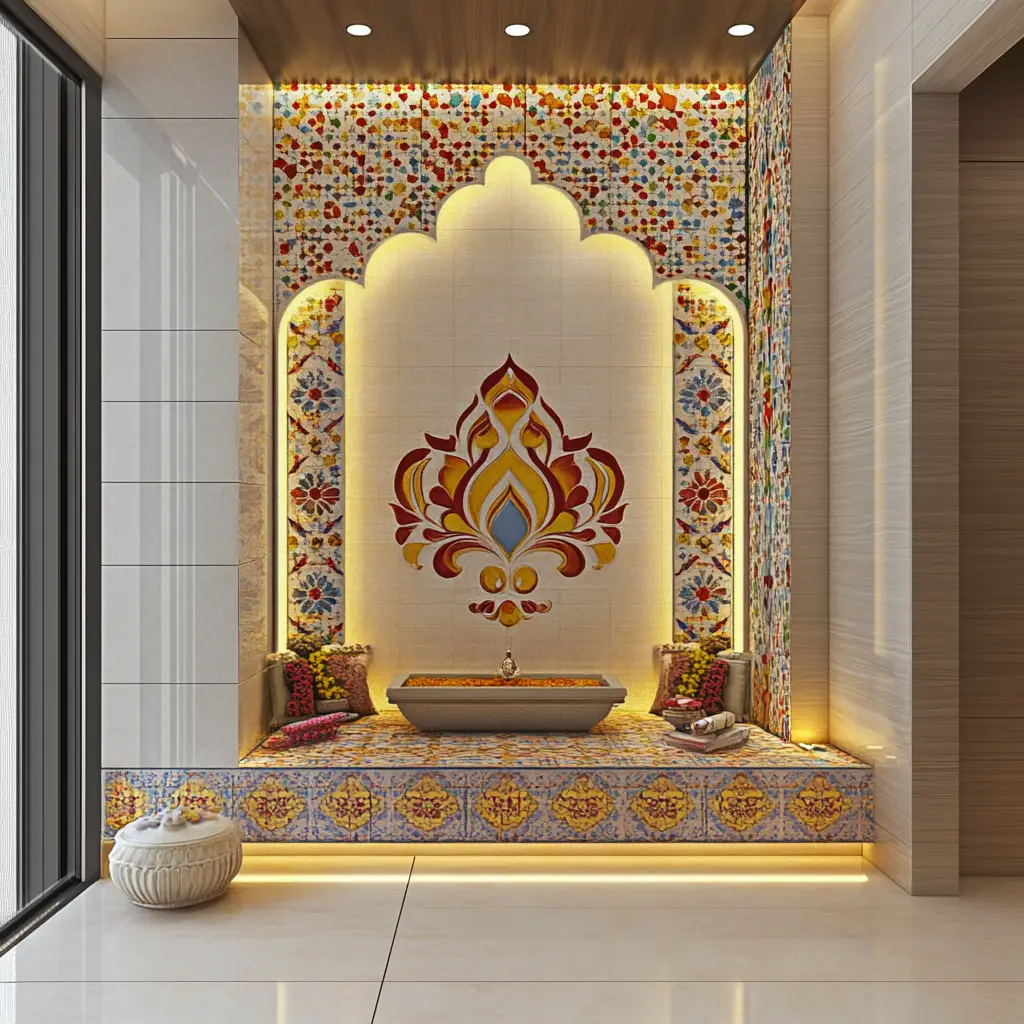
15. Open Mandir Under Staircase
Turn the awkward space under stairs into a peaceful sanctuary. Install a small raised platform with lighting and decorative wall panels to create a mini temple with maximum use of space.
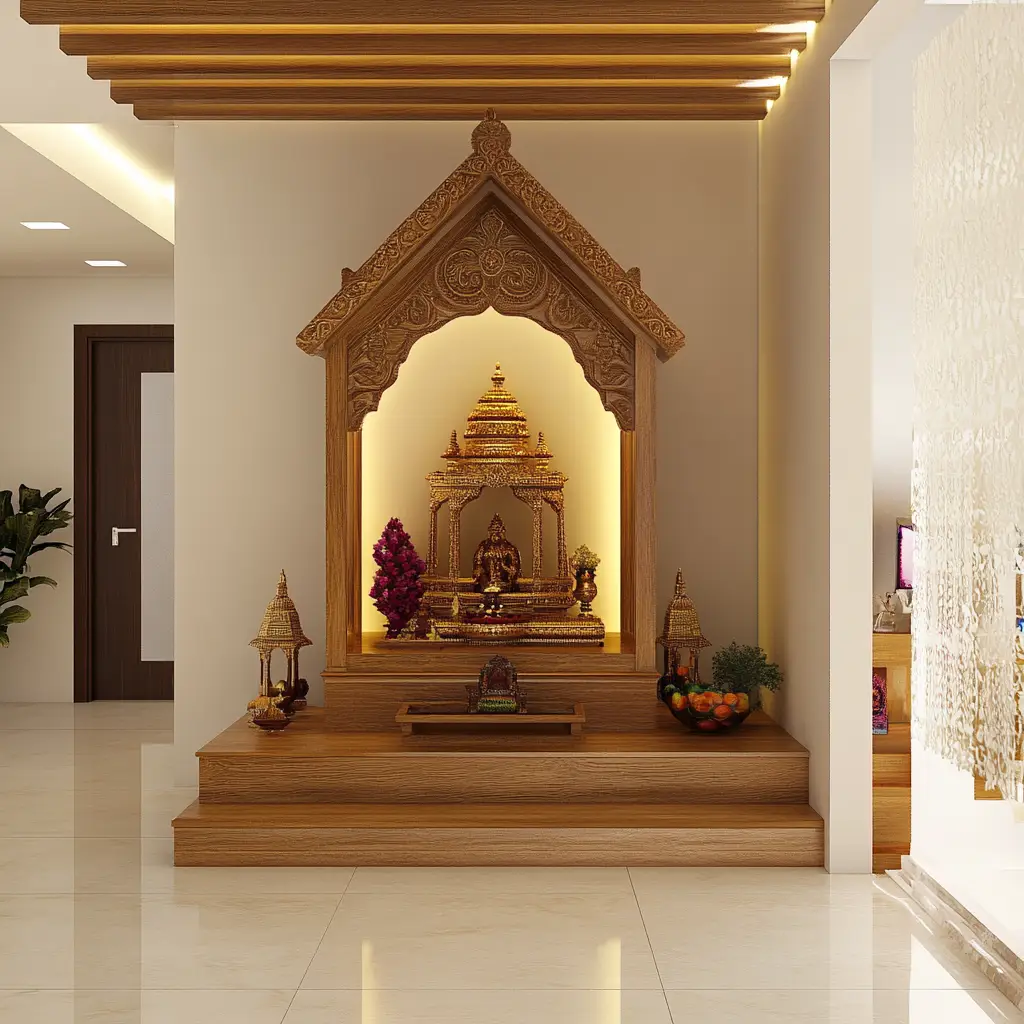
16. Dual-Use Console Pooja Table
Convert a console table in your hallway or entrance into a sacred space. Add idols, diyas, incense, and even a framed mantra. This creates a welcoming spiritual energy right as you enter the home.
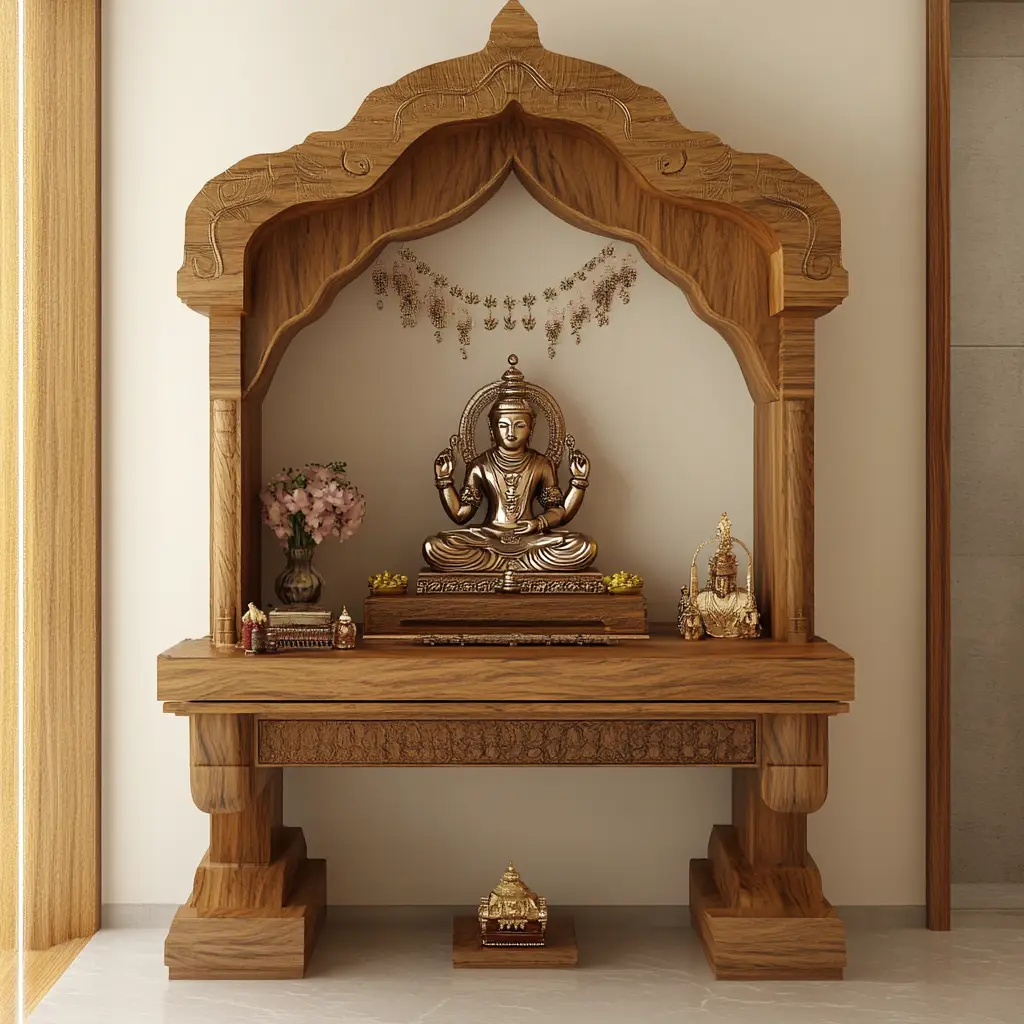
17. Wall Niches for Idols
If your walls have built-in niches or alcoves, turn one into a pooja spot. Add marble base, lighting, and spiritual artwork to highlight the space. A soft mat below completes the ritual area.
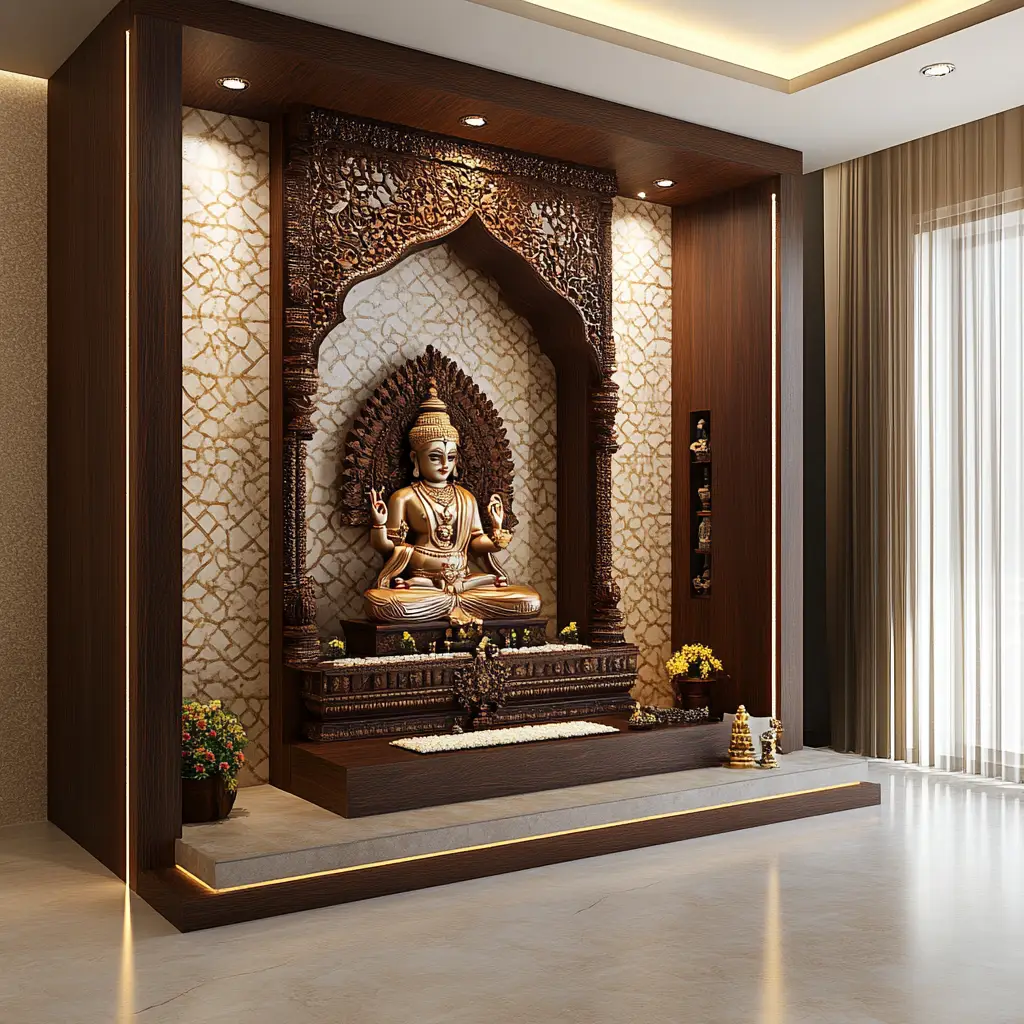
18. Marble Mandir on a Feature Wall
Install a white or cream marble mandir unit on a brightly painted feature wall. The contrast adds visual appeal while maintaining a clean and holy atmosphere. Accent with gold elements for richness.
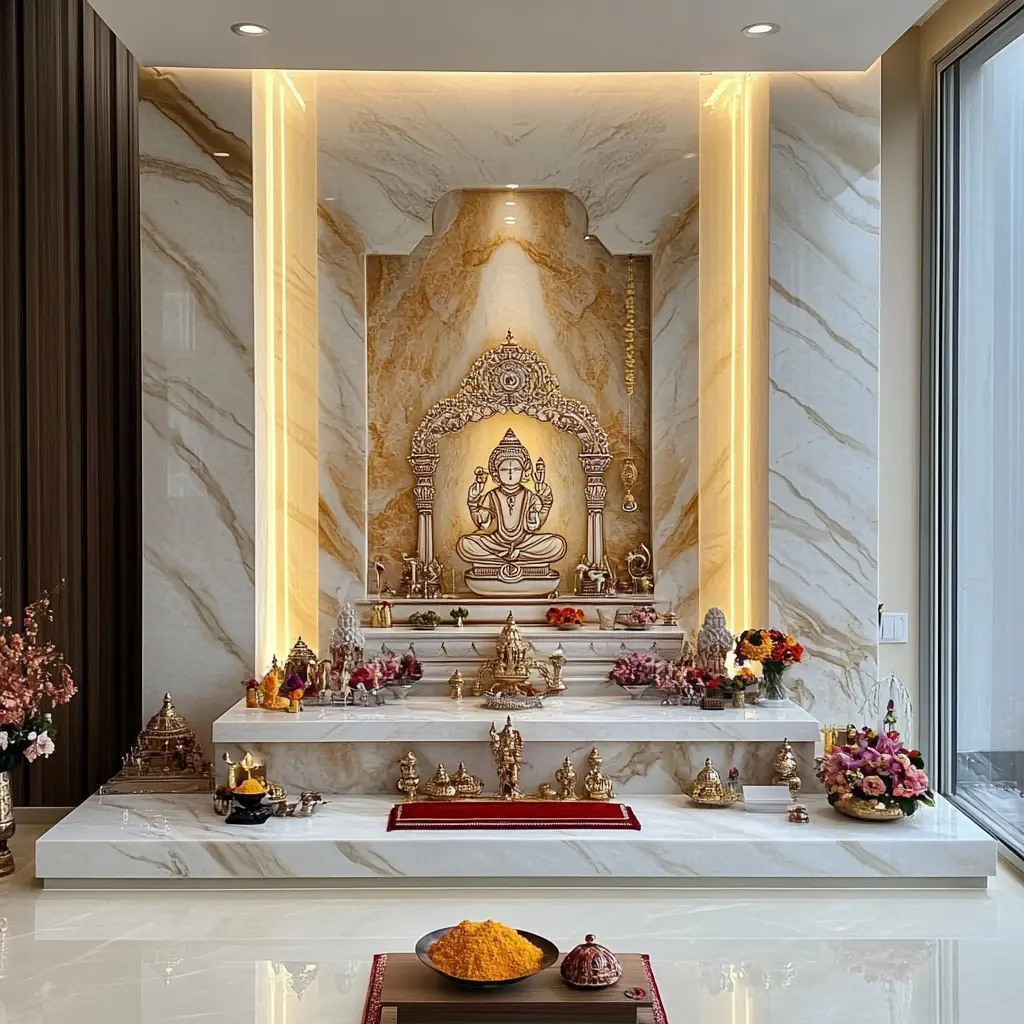
19. Open Floor Mandir with Brass Accents
Place a floor-level mandir in an open space using a wooden or marble platform, paired with brass statues, bells, and lamp holders. Add a decorative rug or pooja chowki for sitting.
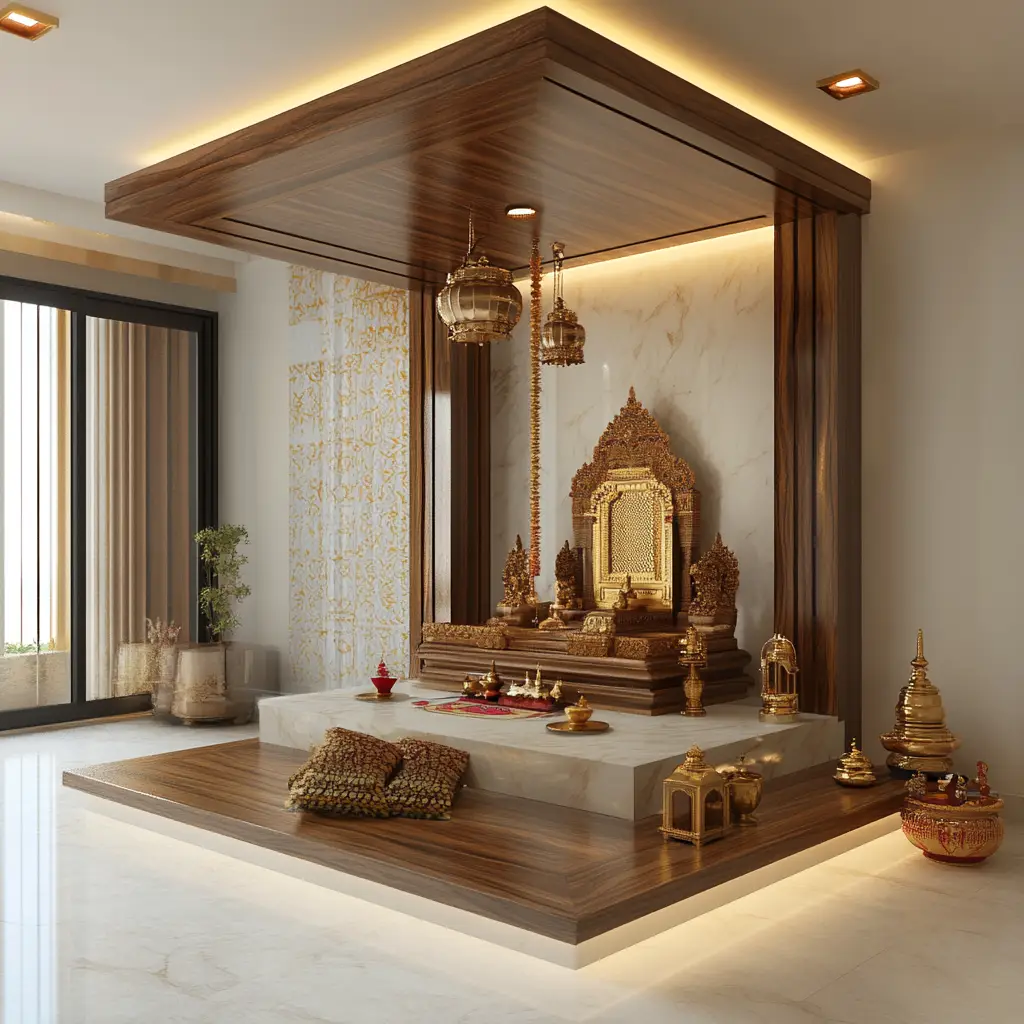
20. Minimalist Zen-Inspired Pooja Zone
Combine Indian tradition with Japanese minimalism. Use low wooden platforms, single idols, and natural stone decor. Light incense, use soft backlighting, and keep the area clutter-free for a meditative atmosphere.
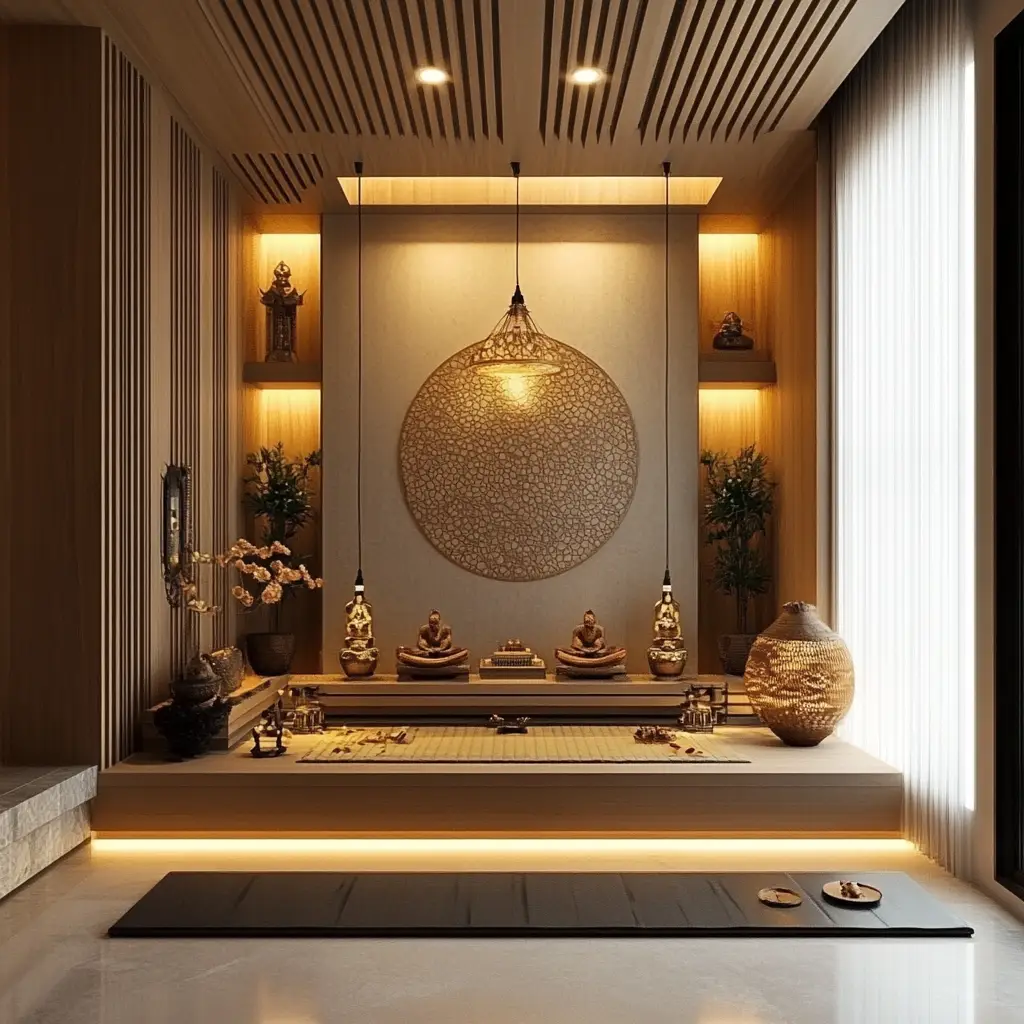
FAQs on Open Pooja Room Ideas
Is it okay to place a pooja mandir in the living room?
Yes, with proper placement and intention, a pooja corner in the living room can be both respectful and aesthetically pleasing. Try to choose a quiet corner, ideally facing east or north, and avoid placing it directly in front of the main door or under a beam.
How can I maintain privacy for an open pooja area?
You can use jaali partitions, decorative curtains, glass panels, or even small arches to define and offer partial privacy. Lighting also plays a big role in creating a sacred ambiance even in open spaces.
What materials are best for a pooja unit in open layouts?
Wood, marble, brass, and even frosted glass work beautifully for open pooja units. Choose natural, easy-to-clean materials that resonate with the energy of your space and are durable over time.
Can I place my mandir near the kitchen or dining area?
Yes, as long as it’s placed with respect and isn’t adjacent to sinks or trash bins. Open mandirs near dining spaces can feel warm and connected, especially if there’s a clean backdrop and soft lighting.
How do I decorate my open pooja room without cluttering it?
Focus on a few quality elements—one or two idols, a diya stand, a small flower vase, and perhaps a framed mantra or artwork. Use concealed storage to hide matchsticks, incense boxes, and oils to keep the space tidy.
Conclusion
An open pooja room can bring spiritual calm into the very flow of everyday life. Whether it’s carved wood against a textured wall, a floating shelf adorned with diyas, or a simple platform under the stairs, the beauty lies in the intention and the energy it brings to your home.
These 20 open pooja room ideas show that you don’t need a separate room to honor tradition. All you need is a thoughtful design, a peaceful corner, and the belief that the divine exists wherever you invite it in. With warmth, reverence, and creativity, you can create a space that blends seamlessly with modern living yet holds space for age-old rituals and peace.
